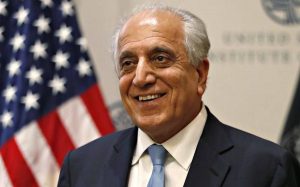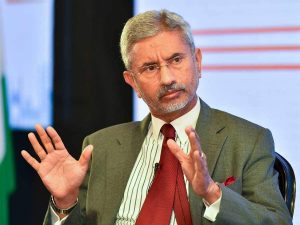
India has cautiously welcomed the political deal reached between President Hamid Karzai and his rival, former chief executive Abdullah Abdullah, in a US-brokered peace initiative but expressed concern over the continued violence in the country. “India has consistently supported inclusive governance, national unity, strong institutions, constitutional order, rights of all sections of society, and the territorial integrity of Afghanistan,” the Ministry of External Affairs said in a statement. The continued violence in Afghanistan is a matter of deep concern. India calls for an immediate ceasefire and assistance to the people of Afghanistan to deal with the humanitarian situation arising from COVID-19, it said.
Calls for Intra-Afghan Talks
Welcoming the development, it further said that “India hopes a political agreement and the creation of the High Council of National Reconciliation would result in renewed efforts for establishing enduring peace and stability and putting an end to externally sponsored terrorism and violence.” US special representative to Afghanistan, Zalmay Khalilzad, who is spearheading the reconciliation and peace initiative, while announcing the political breakthrough this weekend, told reporters that there remain challenges but there is no alternative to pushing forward with peace. There is a consensus, both in Afghanistan and internationally, that there is no military solution to the Afghan war and that a political solution, a peace agreement among Afghans, is the only realistic option.
“We have urged Afghans to come together to take advantage of the historic opportunity and have pushed President Ghani and Dr. Abdullah to reach a political agreement to form an inclusive government,” Mr Khalilzad said. The US had been simultaneously working to settle the differences between the two political heavyweights even as its talks with the Taliban continued for a peace deal, which subsequently followed on February 29, 2020. However, various issues have impaired the peace process, including a political stalemate, disagreement over prisoners’ release, and a delay in holding an intra-Afghan dialogue.

Obstacles in the Peace Process
While the Taliban has demanded the release of all its 5,000 fighters from custody, the government could release only 1,011 prisoners; on its part, the Taliban has freed 253 Afghan government detainees. It is seen as one of the major impediments for starting the intra-Afghan talks. The government has been cautious after fresh bombings and suicide attacks gripped the nation. Although the Nandgarh attack in mid-April, in which 78 people were killed, was claimed by the ISIS-K faction, the recent suicide bombing at a maternity ward of a military hospital in Kabul was not immediately known, raising security concerns of the government. The Taliban, however, denied any hand in the brutal attack, in which several infants and pregnant women were among the 24 dead and many injured.
Reduction in Violence is Key
“We have urged all sides to reduce violence. We have pushed to get both sides, the Afghan Government and the Taliban, to release prisoners. We want to get to the intra-Afghan negotiations as soon as possible, and there has been a discussion of dates both in the agreement – that date was missed – and now a new date is under discussion. Intra-Afghan negotiations are the only path to an enduring peace among Afghans,” the US special envoy said.“We urge the Taliban and the government not to play the ISIS game, but to cooperate against it. And the appropriate response is to accelerate the peace process, not to delay it because of what ISIS has done,” he added. Two specific requirements must be fulfilled at this stage, he said. First, is the commitment by the Taliban on counter terrorism, and second, is the intra-Afghan negotiation. “It will be best if this happens when we have substantial forces in southern Afghanistan,” he added.
Author Profile
- India Writes Network (www.indiawrites.org) is an emerging think tank and a media-publishing company focused on international affairs & the India Story. Centre for Global India Insights is the research arm of India Writes Network. To subscribe to India and the World, write to editor@indiawrites.org. A venture of TGII Media Private Limited, a leading media, publishing and consultancy company, IWN has carved a niche for balanced and exhaustive reporting and analysis of international affairs. Eminent personalities, politicians, diplomats, authors, strategy gurus and news-makers have contributed to India Writes Network, as also “India and the World,” a magazine focused on global affairs.
Latest entries
 DiplomacyJanuary 5, 2026India walks diplomatic tightrope over US operation in Venezuela
DiplomacyJanuary 5, 2026India walks diplomatic tightrope over US operation in Venezuela India and the WorldNovember 26, 2025G20@20: Africa’s Moment – The Once and Future World Order
India and the WorldNovember 26, 2025G20@20: Africa’s Moment – The Once and Future World Order DiplomacyOctober 4, 2025UNGA Resolution 2758 Must Not Be Distorted, One-China Principle Brooks No Challenge
DiplomacyOctober 4, 2025UNGA Resolution 2758 Must Not Be Distorted, One-China Principle Brooks No Challenge India and the WorldJuly 26, 2025MPs, diplomats laud Operation Sindoor, call for national unity to combat Pakistan-sponsored terror
India and the WorldJuly 26, 2025MPs, diplomats laud Operation Sindoor, call for national unity to combat Pakistan-sponsored terror







